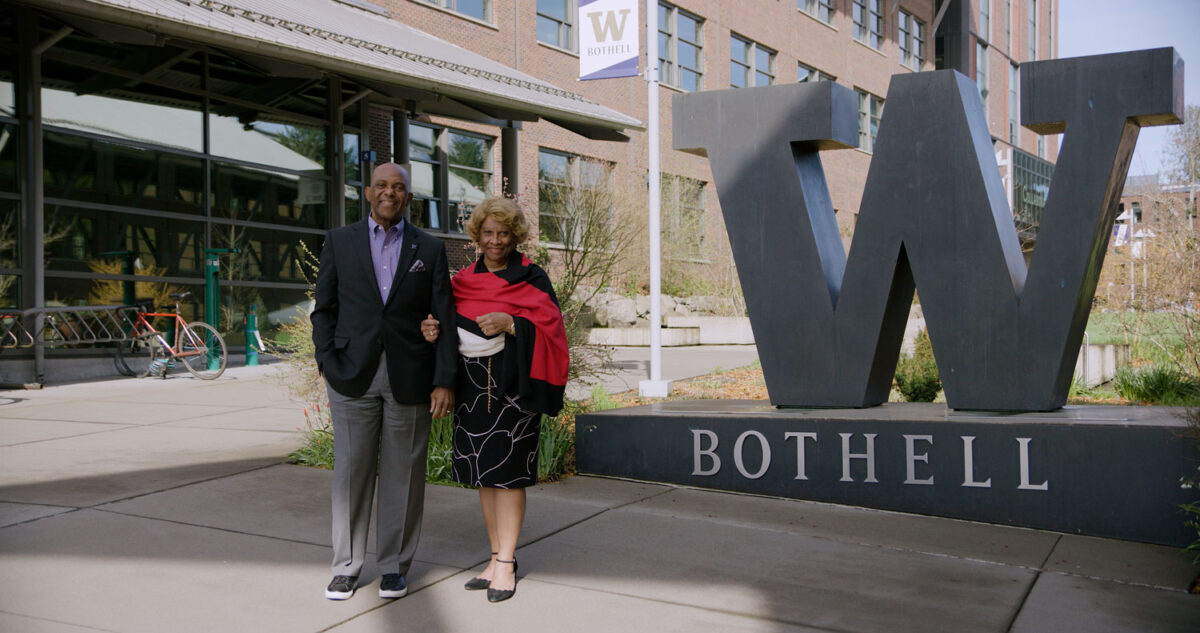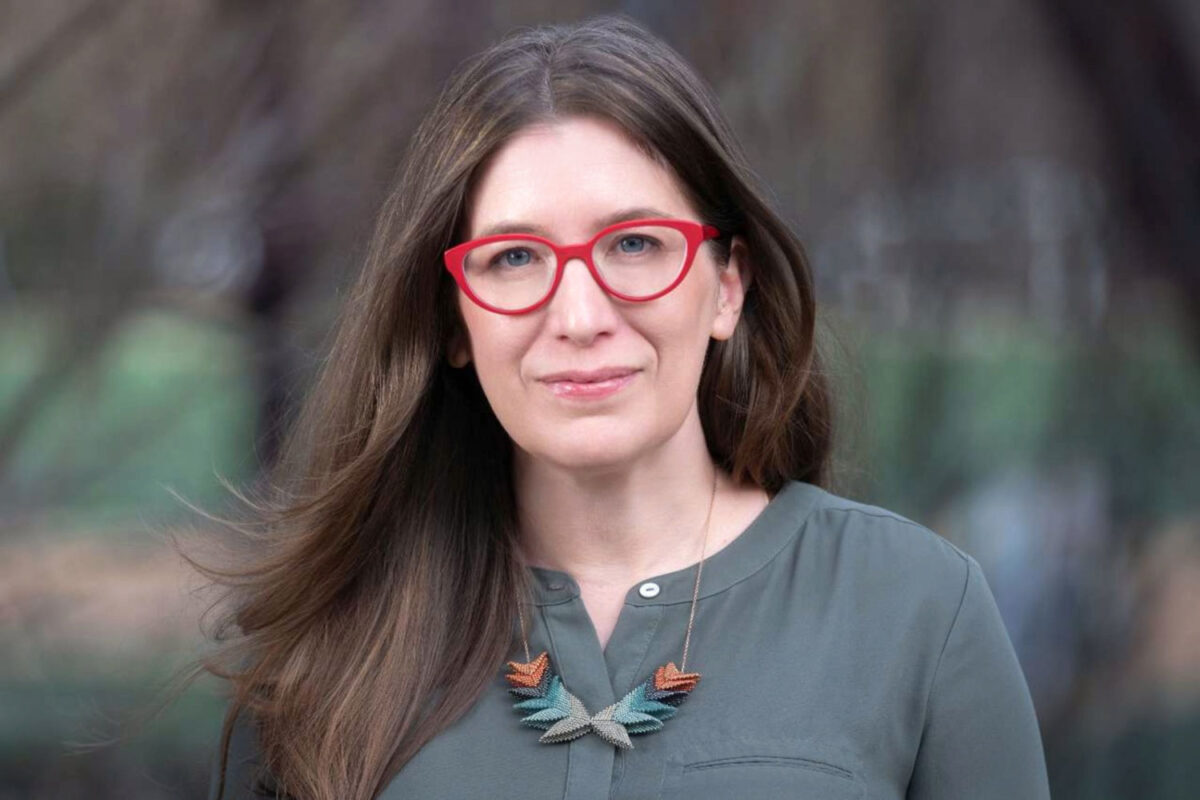Clyde and Sherrelle Walker are driven by a shared goal: To ensure students of color have a chance at higher education.
Clyde Walker, a 1977 graduate of the University of Washington, served on the UW Alumni Association Board of Trustees for 11 years before joining the Chancellor’s Advisory Board (now the Chancellor’s Philanthropy Leadership Council) at UW Bothell. A lifelong educator, Sherrelle Walker serves as chair for the Ambassadors Board at the UW’s College of Education in Seattle.
They also created the Beulah Shaw-Walker and Lula Hines-Jiggitts Endowed Fund in Education at UW Bothell for future teachers of color.
For all their financial support and meaningful contributions through their advocacy and volunteerism, the Walkers have been recognized with UW Bothell’s 2024 Legacy Award. The award annually recognizes individuals, families and organizations who contribute their time, service and philanthropy to the campus — and who encourage others to do the same.
“Clyde and Sherrelle are committed leaders at the UW and across the community,” said Chancellor Kristin G. Esterberg. “I am so grateful they have chosen to share their insights and energy with our campus in particular.”
Connecting to campus
Their legacy started with a connection.
For Clyde Walker, who spent his career on the east side of Lake Washington, a chance encounter with Amy Maki led to his initial awareness of and interest in UW Bothell. In the early years of the University, Maki served as the director of admissions, student services and community relations.
“Amy talked about how wonderful UW Bothell was, and I could tell she was really excited about working with students of color,” he said. “What the campus was trying to do for underrepresented students really resonated with me, especially considering its location on the Eastside.
“UW Bothell’s commitment to first-generation students has been part of its core since the very beginning.”
It was some years later, when Walker joined the UW’s alumni association board, that he was presented with opportunities to support first-gen students attending college and to reconnect with UW Bothell through campus visits. It was his participation on the search committee to choose the next UW president in 2015, however, that led to his deep connection to UW Bothell.
“Kenyon Chan, UW Bothell chancellor emeritus, was chair of the committee, and Wolf Yeigh, the chancellor then, was on the committee with me,” said Walker. “We bonded over our mutual desire to graduate more students of color, and they were diligent about keeping me apprised about what was happening on campus and ways to support student success.
“Honestly, I think Wolf called me the day I was rolling off the alumni association board to ask me to serve on his advisory board!”
“UW Bothell’s commitment to first-generation students has been part of its core since the very beginning.”
Clyde Walker, 2024 UW Bothell Legacy Award recipient
Learning to listen
Sherrelle Walker’s connection to higher ed started with a dance company.
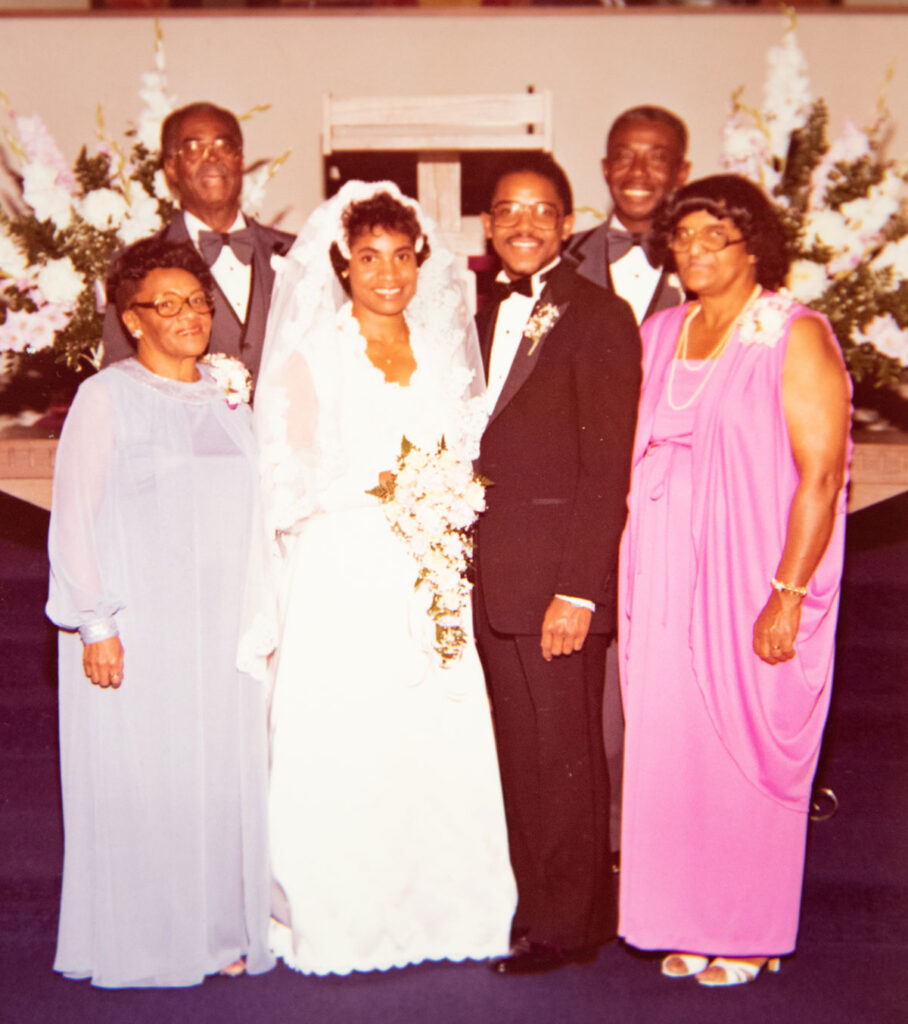
The self-described tennis jock from Hampton University was teaching earth science and physical education to middle-schoolers in Hartford, Connecticut, when she decided to start a tennis team, in part to establish a work ethic and introduce the concept of teamwork. The students had a different idea: They wanted to dance.
“My parents taught me, ‘You take kids where you find them and then you move them forward,’” she said. “I wanted to get these kids in Hartford, who were mostly first-generation, into higher education. If they wanted a dance company, we would start a dance company. I would find a way to bring education into it.”
The company started like a typical dance studio. Students rehearsed two to three hours every day, five days a week, right after school. They learned how to work together because one move will affect another.
Soon, Walker introduced the concepts of listening and presenting. To stay in the company, students had to read the front page and the city page of the newspaper every night. The next day during a break in rehearsal, a random student was selected to present what they learned.
But the assignment didn’t stop there. To help ensure the other dancers were engaged enough to pay attention, each student was charged a penny for every “um” uttered during the presentation. The stakes were higher — a quarter — for verbs that weren’t conjugated correctly.
“At first it was, ‘Let’s catch them doing something wrong and get money for it,’ but then it turned into a session of learning and listening,” she said. “It helped them stand up in front of their peers and talk about something they researched and felt confident about. They saw themselves as dancers, but they were scholars first.”
Participating fully
The assignment taught the students they could stand up anywhere, in front of anyone, and have a conversation. They would soon have that opportunity.
Three years into the program, Walker decided to take the entire company on college tours to inspire a higher education mindset. She set her own mind to writing to colleges with the proposal that the troupe would perform two nightly concerts in three days and that the school would not only house and feed the company but also connect the middle-schoolers to students in summer school. It was a bold proposal.
“I wanted them to have the college experience during the day, to talk directly with students who looked like them about what they’d gone through and, ultimately, to see that college was possible for them,” she said.
Several Hartford insurance companies covered the cost of the tours, eliminating financial concerns and allowing the students to participate fully. As a result, over time more than two-thirds of the middle-school dancers went on to attend college — the first in their families to do so — and more than half of them received their degrees.
“Can you imagine? Many of these young people are still together,” she said. “They actually created a website to stay connected! Every now and then I tune in to see how they’re doing.
“I started that dance company in 1971, and now those hundreds of kids have families of their own and are sending their kids to college. They’ve become who I wanted them to be. They’re out there talking with other parents about higher ed.”
Giving time, talent, treasure
Just as the insurance companies eliminated financial barriers so the dancers could experience college, the Walkers established an endowed fund in UW Bothell’s School of Educational Studies — named for their mothers — so future educators could focus on their studies and the whole college experience.
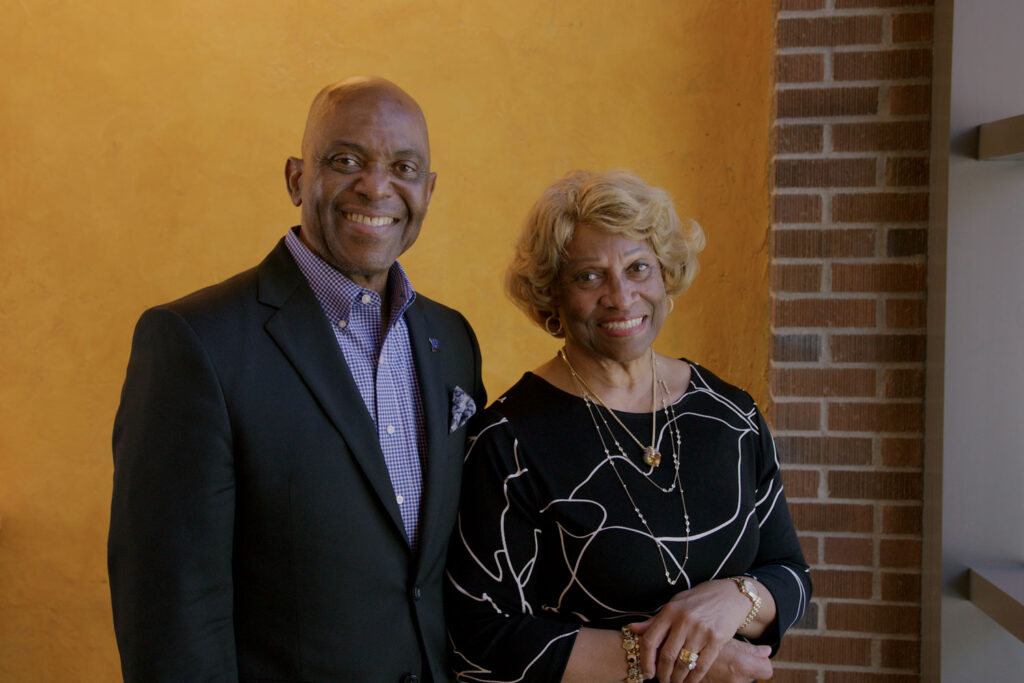
“College is so much more than books and going to classes,” said Clyde Walker. “It’s also about building connections and relationships. You’re learning how to engage and be in different spaces and deal with different people who maybe weren’t raised like you were.
“It’s our intent to support students in a way that they can participate in diverse experiences and really be engaged in all that UW Bothell has to offer. Run for student government. Join a club. Study abroad. You’ll be a better teacher as a result.”
Chancellor Esterberg noted that the couple is clear about the strategies and investments that are needed to improve the educational system overall — and honest about what they expect from educational institutions. “Sherrelle and Clyde are an inspiration to everyone they meet,” she said. “They know the power education has to transform lives, to elevate families and to change entire communities.
The Walkers have also made an impact at the UW’s College of Education in Seattle. In addition to chairing its Ambassador Board, Sherrelle recently became its representative on the UW Foundation Board. She helped to raise more than $5 million for the college’s Brotherhood Initiative — for which Clyde is a mentor — and in 2021 she helped launch the Sisterhood Initiative.
Clyde also serves on the Dean’s Advisory Board for the UW’s Foster School of Business and on the board of its Center for Leadership and Strategic Thinking. In 2023, he received the Spratlen Legacy Award from the school and is a frequent guest speaker and panel member.
Coming full circle
In addition to UW Bothell’s Legacy Award, the Walkers were honored with the UW’s 2024 Gates Volunteer Service Award, which recognizes individuals whose long-term volunteer efforts have encouraged others to similarly support the UW.
One such volunteer is Emily Anderson (Society, Ethics & Human Behavior ’09), who was a recent graduate representing UW Bothell on the UWAA board when Clyde was a member and board chair. Because of his interest in UW Bothell, the two developed a mentor/mentee relationship, and he was instrumental both in Anderson’s professional development and in her expanding volunteerism with UW Bothell.
As he stepped away from the Chancellor’s Philanthropy Leadership Council after six years this past spring, Anderson was poised to step in.
“It’s very satisfying and rewarding to see someone I mentored enter into a leadership role and be equally committed to an institution I care about so deeply,” Walker said. “I feel very good about leaving the council knowing that Emily is there.
“She’s a grad and an experienced professional. She has the energy, knowledge and experience now, and she can be a resource for others. Her appointment to the council validates the time and effort I poured into our relationship, and her commitment to learn and grow.
“It’s a full circle moment for me,” Walker said, “just as it is for Sherrelle when she sees her former dancers sending their kids to college.”
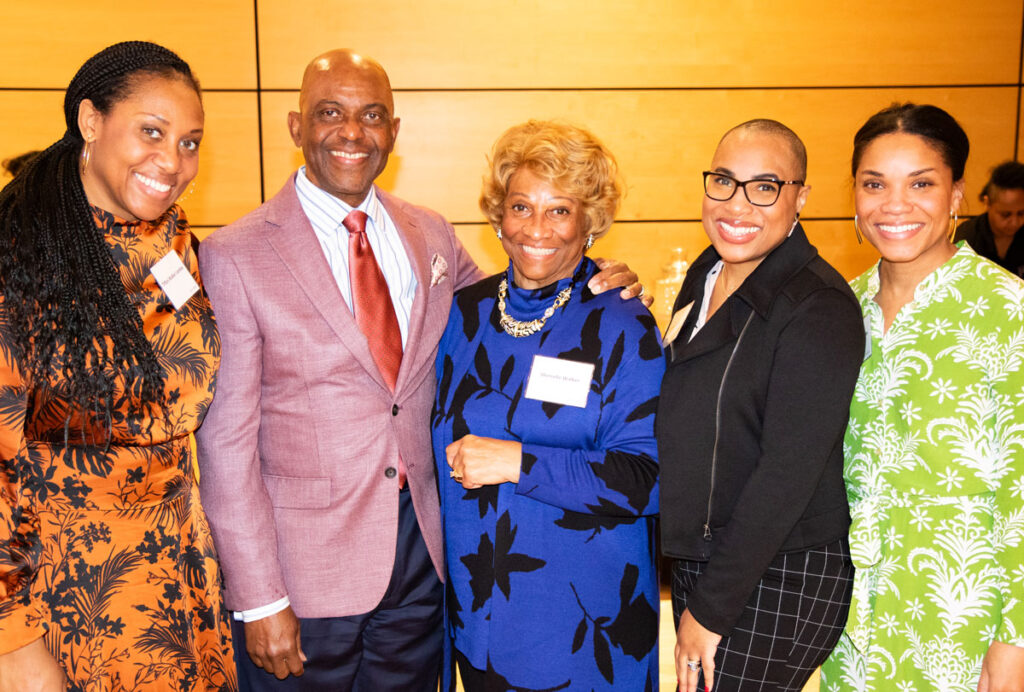
Doing more than expected
UW Bothell’s Legacy Award affirms the Walkers’ commitment to ensuring students of color have the opportunity to attend college and confirms that what they are doing is making a difference and having an impact.
According to the Walkers, there is still more to do.
“How can we work better together?” Sherrelle Walker asked. “How can we work with one another to create an environment that supports and assists everyone so that future generations have better opportunities to do more than they ever expected?”
As Clyde Walker added, “We want to be part of creating a supportive, encouraging, accountable community to honor the people, our mothers, who invested in us without knowing where it might lead — to help those who follow us to have the same mindset of paying it forward without expectation.
“To paraphrase a Greek proverb I heard recently, ‘A society grows great when people plant trees in whose shade they know they will never sit.’
“We want to be part of planting those trees at UW Bothell.”

